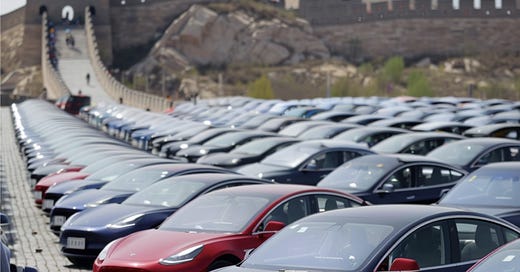The Chinese counter-narrative to US tariffs and excess capacity accusations
Chinese economists and officials fiercely deny US accusations of excess capacity.
Keep reading with a 7-day free trial
Subscribe to China Banking News to keep reading this post and get 7 days of free access to the full post archives.




